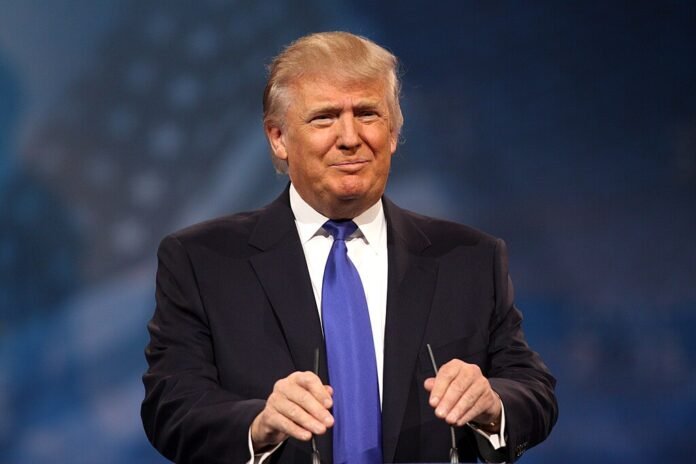A stunning operational security lapse saw the Atlantic’s editor-in-chief added to a signal chat with top Trump National Security officials
In an extraordinary breach of security protocols, The Atlantic has published a trove of Signal messages showing President Donald Trump’s top national security team casually discussing imminent military strikes in Yemen — in a group chat that, due to a stunning error, included a journalist.
The messages were part of a Signal thread that accidentally added The Atlantic’s editor-in-chief, Jeffrey Goldberg, to what was supposed to be a tightly held coordination channel. The chat, set up by National Security Adviser Mike Waltz in mid-March, was intended to coordinate potential military strikes against Houthi militants — but instead laid bare a haphazard process that some officials fear could have endangered U.S. operations.
The Atlantic had previously withheld parts of the conversation but released them this week. Among them were messages from Defense Secretary Pete Hegseth detailing weapons systems and strike timing — all shared over an unclassified commercial messaging app. The messages have sparked alarm among current and former U.S. officials, who worry they may have been vulnerable to foreign interception.
“There are adversaries who would have paid millions to see that thread in real time,” one former intelligence official told CNN.
Embed from Getty ImagesWaltz, appearing Tuesday on Fox News, said he “takes full responsibility” for creating the chat but suggested — without evidence — that Goldberg may have somehow added himself. “We’re trying to figure out whether it was deliberate or technical,” he said, adding that “the best technical minds from Elon Musk” are investigating. Waltz also floated a bizarre explanation that he may have had Goldberg saved under the wrong name in his contacts: “You’ve ever had someone else’s number under a contact? That’s what happened.”
Signal’s architecture, however, does not allow individuals to self-add into a group chat. Participants must be added by an admin — in this case, Waltz.
He also changed the chat’s auto-disappearing message timer from one week to four, a move meant to enhance operational secrecy — but which could violate the Presidential Records Act. Under federal law, communications involving key decision-making must be preserved. It’s unclear if an official record of the conversation exists.
The chat, comprising senior Trump officials, formed what resembled an impromptu “Principals Committee” — a term used for high-level national security meetings usually conducted in classified settings. Participants included Defense Secretary Pete Hegseth, CIA Director John Ratcliffe, acting Director of National Intelligence Tulsi Gabbard’s de facto chief of staff Joe Kent, and Senator J.D. Vance, now serving as Trump’s vice president.
Vance’s contributions focused largely on political optics. He warned that striking the Houthis might conflict with Trump’s ongoing messaging about avoiding new foreign entanglements, particularly in Europe. “I don’t think he realises this could undercut his Europe position,” Vance wrote, sparking commentary that the proposed military action was being filtered more through electoral politics than strategic necessity.
“The President and the Vice President have had subsequent conversations about this matter and are in complete agreement,” Vance’s office said in response to initial reporting.
The group’s debate revealed a striking lack of formality and the apparent sidelining of traditional decision-making channels. Joe Kent, who has not yet been confirmed for any official role, participated freely in the thread, referencing “BAM shipping” — shorthand for combat operations to protect international shipping lanes near Bab el-Mandeb, a vital choke point targeted by Houthi forces.
Then came the CIA’s John Ratcliffe, offering what The Atlantic initially redacted — confirmation that the Agency was collecting intelligence on Houthi leadership. While the message stopped short of detailing methods, the mere admission of ongoing covert work raised eyebrows.
Hegseth, for his part, contributed not only operational updates but political framing, arguing that a “limited, precision strike” could be sold domestically as decisive but restrained. His willingness to weigh in on political messaging drew sharp rebukes from former officials, who said defence secretaries typically keep politics far from war planning.
The Signal thread paints a chaotic portrait of Trump’s wartime decision-making — informal, impulsive, and overly reliant on unclassified communication channels. One intelligence expert called it “a textbook case of how not to handle military deliberations in the 21st century.”
The revelation couldn’t have come at a more tense moment. Since the Gaza war’s outbreak, Houthi militants have stepped up attacks on international shipping, prompting discussions within the Trump administration about retaliatory measures. But rather than following secure, classified processes, the planning spilled into an app designed for everyday messaging.
It remains unclear whether Trump was aware of Goldberg’s presence in the group chat before the leak. CNN was told that after Goldberg alerted a contact at the Pentagon to the messages, The Atlantic began coordinating with legal counsel to confirm what it could responsibly publish.
In Washington, the fallout has been swift and disorienting. Multiple congressional committees have requested briefings, and watchdog groups are demanding an investigation into potential violations of national security protocols and record-keeping laws.
Yet in typical Trump-world fashion, the focus from administration insiders has not been on the substance of the leak — but on who is to blame for the slip-up. Waltz has insisted it was a one-time mistake. Others suggest it reflects a broader pattern of informality and disregard for traditional process that defined Trump’s first term — and may define his second.
